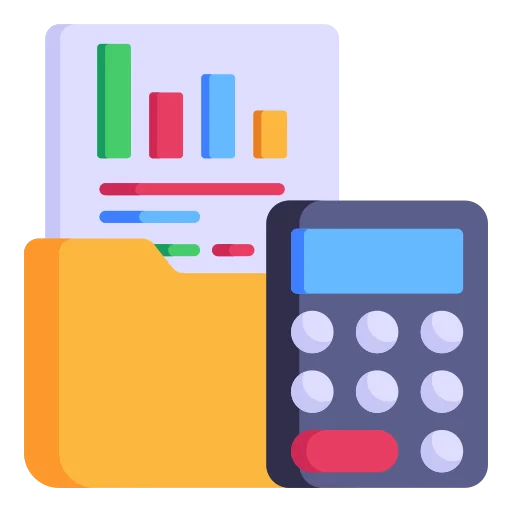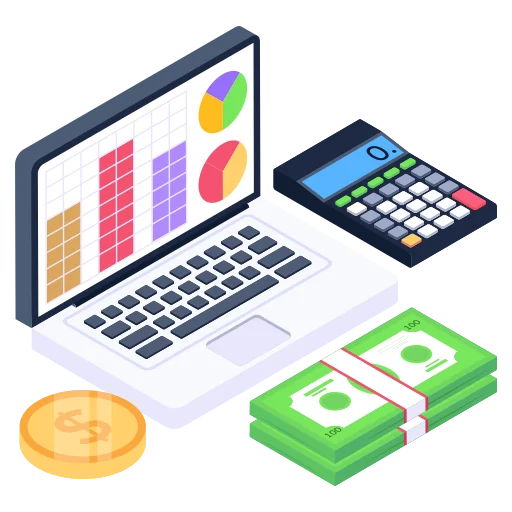Why Choosing the Right Software Matters
Running a small business comes with many challenges—managing cash flow, keeping up with taxes, staying compliant, and making sure every financial record is accurate. The truth is, many entrepreneurs start with spreadsheets or manual tracking, only to find themselves overwhelmed as transactions pile up. That’s when the search for the right bookkeeping software for your small business begins.
In my 15 years of working with small business owners, I’ve seen firsthand how the right software can transform day-to-day operations. I’ve also seen what happens when the wrong tool is chosen—it leads to frustration, wasted money, and hours lost trying to fix avoidable mistakes.
So, how do you know which bookkeeping software for your small business is the right fit? Let’s start by understanding why this choice matters more today than ever before.
The Rising Importance of Bookkeeping Software in 2025
Business is moving faster than ever. Customers expect quick responses, governments require more digital reporting, and small businesses need financial clarity to compete. Choosing the right bookkeeping software for your small business isn’t just about convenience—it’s about survival and growth.
Here’s why:
- Automation Reduces Errors
Manual bookkeeping often results in mistakes that cost businesses time and money. With modern bookkeeping software for your small business, automation handles data entry, reconciles bank transactions, and generates financial reports with far fewer errors. - Compliance is Non-Negotiable
Tax regulations change frequently. The right bookkeeping software for your small business can track expenses, generate tax-ready reports, and ensure compliance with the latest rules. - Cash Flow Visibility
A small business lives or dies by its cash flow. Good software gives real-time insights into who owes you money, upcoming bills, and projected revenue. - Scalability for Growth
What works when you’re managing 10 invoices a month may fail when you’re handling 1,000. Selecting scalable bookkeeping software for your small business means you won’t outgrow your system in a year.
Signs It’s Time to Upgrade Your Bookkeeping System
Many business owners wait too long before upgrading. Based on my consulting experience, here are common red flags that indicate you need better bookkeeping software for your small business:
- You spend hours each week entering data manually.
- You struggle to match invoices with payments.
- Tax season is always stressful and full of missing information.
- Your accountant keeps asking for better records.
- You can’t generate basic reports like profit and loss or cash flow without stress.
- Different departments (sales, finance, operations) aren’t aligned.
If any of these sound familiar, it’s time to explore modern bookkeeping software for your small business that makes your life easier, not harder.
Key Features to Look For
Not all software is created equal. Before comparing names like QuickBooks, Xero, or FreshBooks, it’s essential to define what features actually matter. Here are the must-haves for bookkeeping software for your small business:
1. User-Friendly Dashboard
Small business owners don’t have time for steep learning curves. The best bookkeeping software for your small business offers a clear, intuitive dashboard showing cash flow, outstanding invoices, and expenses in one view.
2. Automation Tools
Look for automation features like:
- Automatic bank feeds
- Recurring invoices
- Payment reminders
- Expense categorization
Automation is the secret weapon that makes bookkeeping software for your small business a time-saver instead of another burden.
3. Integration with Other Tools
Modern businesses use multiple platforms. The ideal bookkeeping software for your small business should integrate with your CRM, payment gateways, e-commerce systems, and payroll tools.
4. Mobile Access
In 2025, many entrepreneurs run their businesses from their phones. Mobile apps that allow you to send invoices, track expenses, or approve payments on the go are a must.
5. Customizable Reporting
Generic reports aren’t enough. Look for bookkeeping software for your small business that allows custom reporting on metrics that matter most to your industry.
Cost Considerations
One of the most frequent questions I get is: “How much should I spend on bookkeeping software for my small business?”
Here’s what to consider:
- Free vs. Paid: Free software may cover basics, but it often lacks automation and integrations. Paid bookkeeping software for your small business usually ranges from $10 to $70/month, depending on features.
- Hidden Costs: Some providers charge extra for payroll, multi-user access, or additional integrations.
- Value vs. Price: The cheapest option isn’t always the best. Think in terms of ROI—if a tool saves you 10 hours a month, it’s already paying for itself.
Comparing the Top Bookkeeping Software Options
Now that we’ve covered why it’s so important to choose the right bookkeeping software for your small business, it’s time to look at the leading options available today. With so many providers in the market, the decision can feel overwhelming. But when you break down features, pricing, and ease of use, it becomes much easier to decide.
In my consulting career, I’ve worked with dozens of small business owners, testing different platforms. What I’ve learned is that there’s no one-size-fits-all solution. The best bookkeeping software for your small business depends on your size, industry, and growth plans.
Here are the top contenders in 2025.
1. QuickBooks Online
QuickBooks has been the go-to bookkeeping software for your small business for decades—and for good reason. It offers robust features, strong integrations, and is widely trusted by accountants.
Pros
- User-friendly dashboard with customizable reports.
- Automates invoices, expense tracking, and tax calculations.
- Syncs with thousands of apps (PayPal, Shopify, HubSpot, etc.).
- Scalable—works for freelancers up to mid-size companies.
Cons
- Monthly fees can add up as you scale.
- Some advanced features are locked behind higher-tier plans.
- The learning curve can be steep for complete beginners.
Pricing (2025)
- $15/month (Simple Start)
- $30/month (Essentials)
- $55/month (Plus)
- $85/month (Advanced)
Best for: Businesses that want all-in-one bookkeeping software for your small business with strong reporting and integrations.
2. Xero
Xero has grown rapidly as a competitor to QuickBooks. It’s cloud-based, visually clean, and loved by small businesses worldwide.
Pros
- Unlimited users on every plan.
- Strong invoicing and bank reconciliation features.
- Excellent integration with third-party tools.
- Beautiful mobile app for bookkeeping on the go.
Cons
- Limited customer support compared to QuickBooks.
- Payroll features may require third-party add-ons.
- Some advanced reporting is less intuitive.
Pricing (2025)
- $13/month (Early)
- $37/month (Growing)
- $70/month (Established)
Best for: Small businesses that prioritize collaboration and want affordable bookkeeping software for your small business without user limits.
3. FreshBooks
FreshBooks started as an invoicing tool but has evolved into a full bookkeeping software for your small business. It’s especially popular with freelancers, consultants, and service-based businesses.
Pros
- Intuitive, clean interface—very beginner-friendly.
- Strong invoicing and time-tracking tools.
- Excellent customer support.
- Great for businesses that bill hourly or per project.
Cons
- Limited features compared to QuickBooks or Xero.
- Only allows one user on basic plans (extra cost for team members).
- Inventory management is not as strong.
Pricing (2025)
- $17/month (Lite)
- $30/month (Plus)
- $55/month (Premium)
Best for: Service-based professionals who want simple, easy-to-use bookkeeping software for your small business focused on invoicing.
4. Wave Accounting
Wave stands out because it offers free bookkeeping software for your small business. For startups or businesses on a tight budget, this can be a lifesaver.
Pros
- Free core accounting and invoicing features.
- Easy to set up and use.
- Ideal for freelancers or very small businesses.
- Pay-as-you-go add-ons like payroll or payments.
Cons
- Limited customer support (email-based).
- Fewer integrations than competitors.
- Not scalable for larger businesses.
Pricing (2025)
- Free for core features
- Payroll add-on: from $20/month
Best for: Startups and solopreneurs looking for free, entry-level bookkeeping software for your small business.
5. Zoho Books
Zoho Books is part of the Zoho suite, known for its CRM and productivity apps. It’s affordable, feature-rich, and a hidden gem among small businesses.
Pros
- Competitive pricing.
- Strong automation features (workflows, reminders, recurring invoices).
- Excellent integration with the Zoho ecosystem.
- Great mobile apps.
Cons
- Some advanced features require higher-tier plans.
- Fewer third-party integrations compared to QuickBooks/Xero.
Pricing (2025)
- $15/month (Standard)
- $40/month (Professional)
- $75/month (Premium)
Best for: Businesses already using Zoho tools that want affordable bookkeeping software for your small business.
Side-by-Side Comparison
| Software | Best For | Pricing (2025) | Key Strength |
|---|---|---|---|
| QuickBooks | All-in-one, scalable solution | $15–$85/month | Robust features + integrations |
| Xero | Unlimited users, great collaboration | $13–$70/month | Cloud-friendly + global reach |
| FreshBooks | Freelancers/service-based businesses | $17–$55/month | Invoicing + time tracking |
| Wave | Startups/solopreneurs on a budget | Free–$20+ | Free core accounting |
| Zoho Books | Affordable, automation-friendly businesses | $15–$75/month | Zoho ecosystem integrations |
Real-World Scenarios
- Freelancer: A freelance graphic designer might find FreshBooks the perfect bookkeeping software for your small business, thanks to time tracking and project-based invoicing.
- Retail Store: A boutique retail shop might choose QuickBooks for its inventory management and wide integrations.
- Startup on Budget: A small marketing agency with limited funds may start with Wave, then upgrade to Xero or QuickBooks as they grow.
- Tech Firm: A software startup already using Zoho CRM may find Zoho Books to be the smoothest choice.
Questions Small Business Owners Commonly Ask
When choosing bookkeeping software for your small business, these are the most frequent questions I hear:
- Which software works best if I have no accounting experience?
- FreshBooks or Wave are often easier for beginners.
- FreshBooks or Wave are often easier for beginners.
- Which option grows with me as my business expands?
- QuickBooks and Xero are the most scalable.
- QuickBooks and Xero are the most scalable.
- Is free software like Wave really enough?
- Yes, for early stages. But as you scale, you’ll likely need paid features.
- Yes, for early stages. But as you scale, you’ll likely need paid features.
- Which bookkeeping software for your small business works best for e-commerce?
- QuickBooks and Xero offer the best integrations for online stores.
- QuickBooks and Xero offer the best integrations for online stores.
- Can I switch later if I pick the wrong software?
- Yes, but data migration can be tricky. Better to choose with long-term growth in mind.
- Yes, but data migration can be tricky. Better to choose with long-term growth in mind.
Making the Final Decision and Setting Up for Success
Choosing the right bookkeeping software for your small business is only the beginning. The real transformation comes when you implement it strategically, train your team, and set up systems that help you save time, reduce errors, and grow.
I’ll share the framework I use when advising small businesses on how to pick, set up, and maximize their bookkeeping software for your small business.
Step 1: Define Your Business Goals
Before purchasing any tool, ask: What do I want my bookkeeping software for your small business to achieve?
- Do you want to automate invoicing and cut down on late payments?
- Do you need accurate cash flow forecasting to plan for growth?
- Are you focused on compliance and tax preparation?
- Or do you need integrations with sales and CRM software?
When you match software capabilities to your goals, you avoid overpaying for features you don’t need.
Step 2: Prioritize Must-Have Features
Different industries have different priorities. Here are a few key must-haves to consider when evaluating bookkeeping software for your small business:
- Automation: Invoice reminders, recurring payments, and payroll automation.
- Scalability: Ability to add new users, manage more data, and handle multiple locations.
- Integrations: Sync with POS, CRM, or e-commerce platforms.
- Mobile Access: Bookkeeping on the go, crucial for remote teams.
- Reporting: Clear financial insights to guide decision-making.
Pro Tip: Always start with a free trial. Most bookkeeping software for your small business providers offer 14–30 day trials—test before you commit.
Step 3: Budgeting for the Right Solution
A common mistake is picking software based only on price. But remember: bookkeeping software for your small business is an investment. Spending an extra $20–$30 a month could save you dozens of hours and thousands in errors.
Here’s how to budget:
- Stage 1 (Startup): Free or low-cost software like Wave or Zoho Books.
- Stage 2 (Growing business): Mid-tier QuickBooks or Xero plans for automation.
- Stage 3 (Scaling): Advanced QuickBooks or integrated ecosystems (Zoho, NetSuite).
Step 4: Onboarding and Training
Even the best bookkeeping software for your small business won’t work if your team doesn’t know how to use it. Dedicate time to training, whether through online tutorials, workshops, or working with an accountant who specializes in your chosen platform.
- Tip: Assign one “software champion” in your business who learns the tool deeply and helps others adapt.
Step 5: Common Mistakes to Avoid
I’ve seen many small businesses struggle when adopting new tools. Here are mistakes you want to sidestep when choosing bookkeeping software for your small business:
- Ignoring scalability: Outgrowing your software too quickly.
- Not backing up data: Always keep cloud and offline copies.
- Skipping integrations: Missing out on time-saving automations.
- Focusing only on cost: Cheap doesn’t always mean efficient.
- Not consulting your accountant: They can guide you on the right choice.
Step 6: Long-Term ROI from Bookkeeping Software
Once implemented, your bookkeeping software for your small business should deliver ROI beyond just saving time. Look for:
- Reduced manual errors → fewer costly mistakes.
- Stronger compliance → easier audits and tax filing.
- Faster payments → better cash flow from automated invoicing.
- Better decision-making → accurate data for growth strategies.
- Peace of mind → knowing your numbers are always up-to-date.
I’ve had clients tell me that adopting the right bookkeeping software for your small business gave them back 10+ hours a week. That’s the time they used to win new customers, launch products, or simply enjoy life outside work.
FAQs for Choosing the Right Bookkeeping Software
Q1. What is the easiest bookkeeping software for your small business if I’m not good with technology?
- FreshBooks or Wave are often the simplest, with very little setup required.
Q2. Can I integrate bookkeeping software for your small business with my bank account?
- Yes, most modern tools (QuickBooks, Xero, Zoho) allow secure bank feeds.
Q3. How much should I budget for bookkeeping software for your small business in 2025?
- Expect anywhere from $15 to $85 per month, depending on features and scale.
Q4. Is free bookkeeping software for your small business enough?
- It works for freelancers or very small teams, but as you grow, paid tools save more money long term.
Q5. Which bookkeeping software for your small business works best for taxes?
- Accountants widely use QuickBooks and Xero and integrate smoothly with tax filing.
Final Thoughts
Choosing the right bookkeeping software for your small business isn’t just about features—it’s about aligning with your goals, industry, and growth trajectory.
If you’re just starting, Wave or FreshBooks can give you a solid foundation. If you’re growing fast, QuickBooks or Xero may offer the scalability you need. And if you’re part of the Zoho ecosystem, Zoho Books delivers powerful automation.
The key is to treat bookkeeping software for your small business as more than a cost. It’s a long-term investment in efficiency, accuracy, and financial health. With the right choice, you’ll spend less time stressing over numbers and more time building your business.

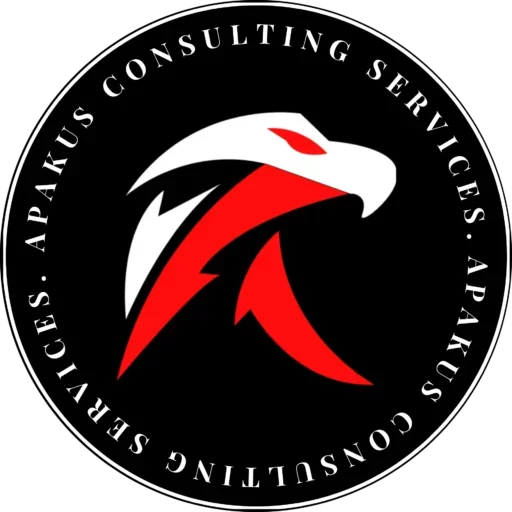



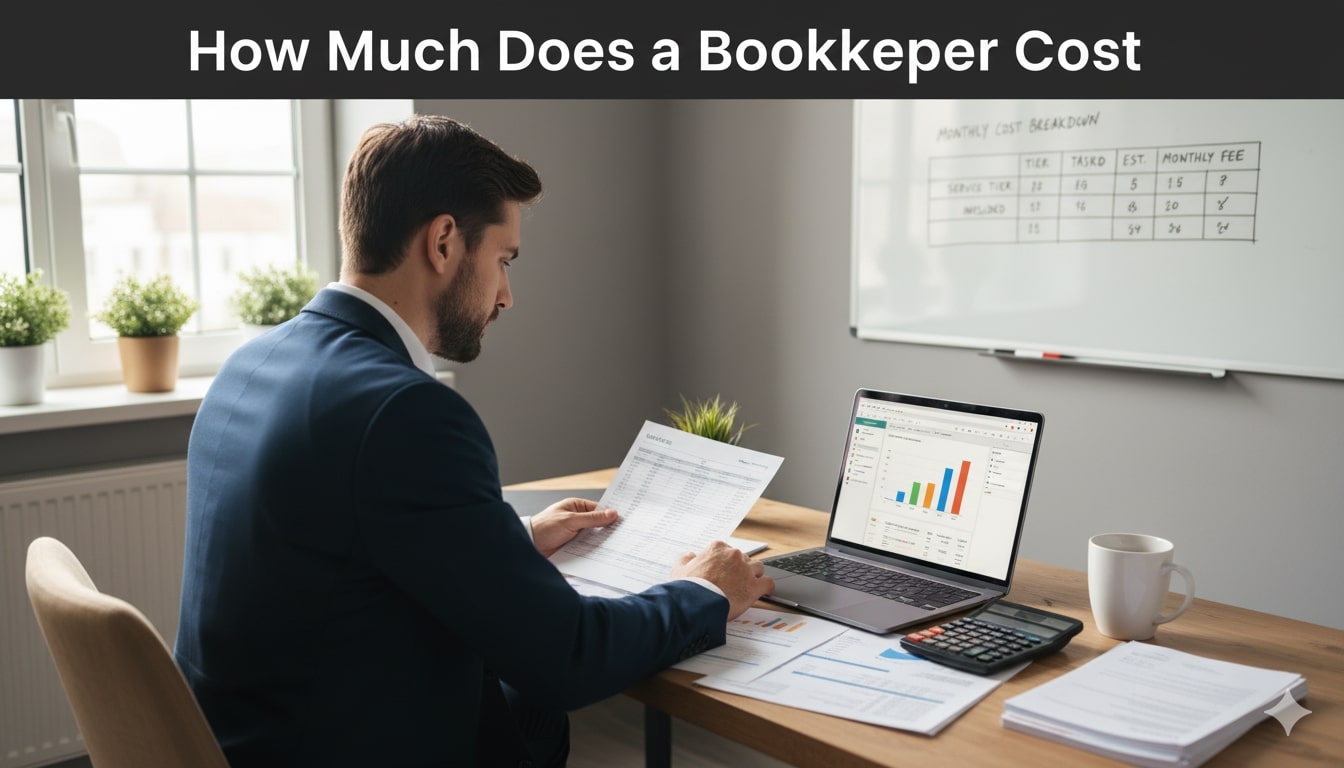
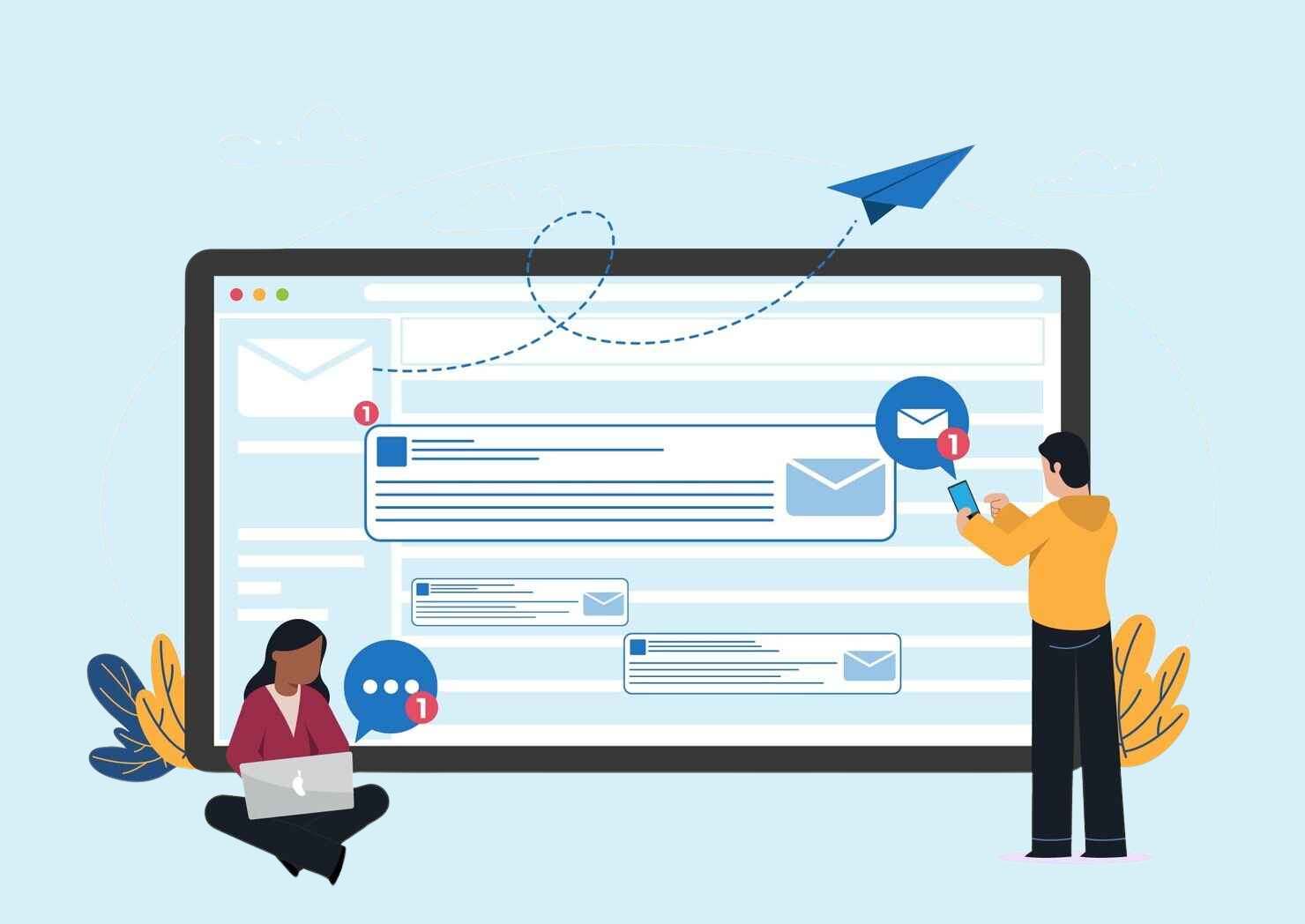
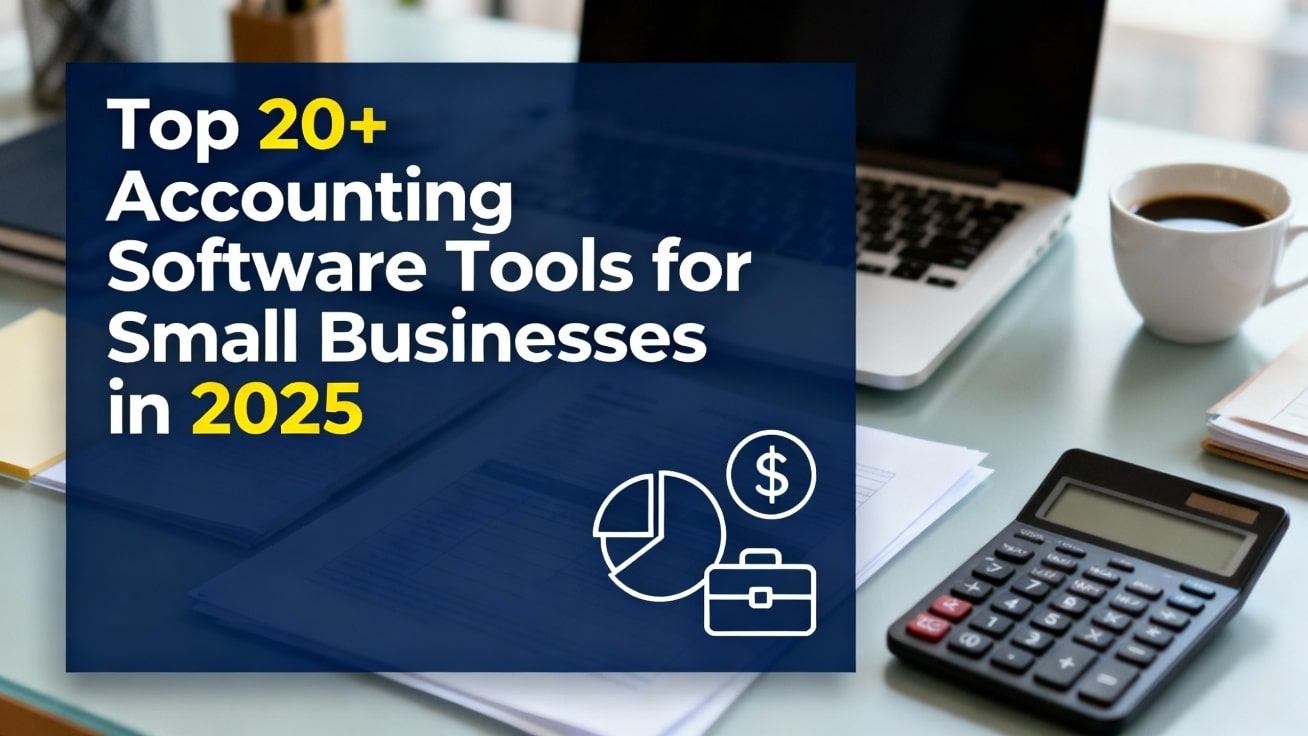
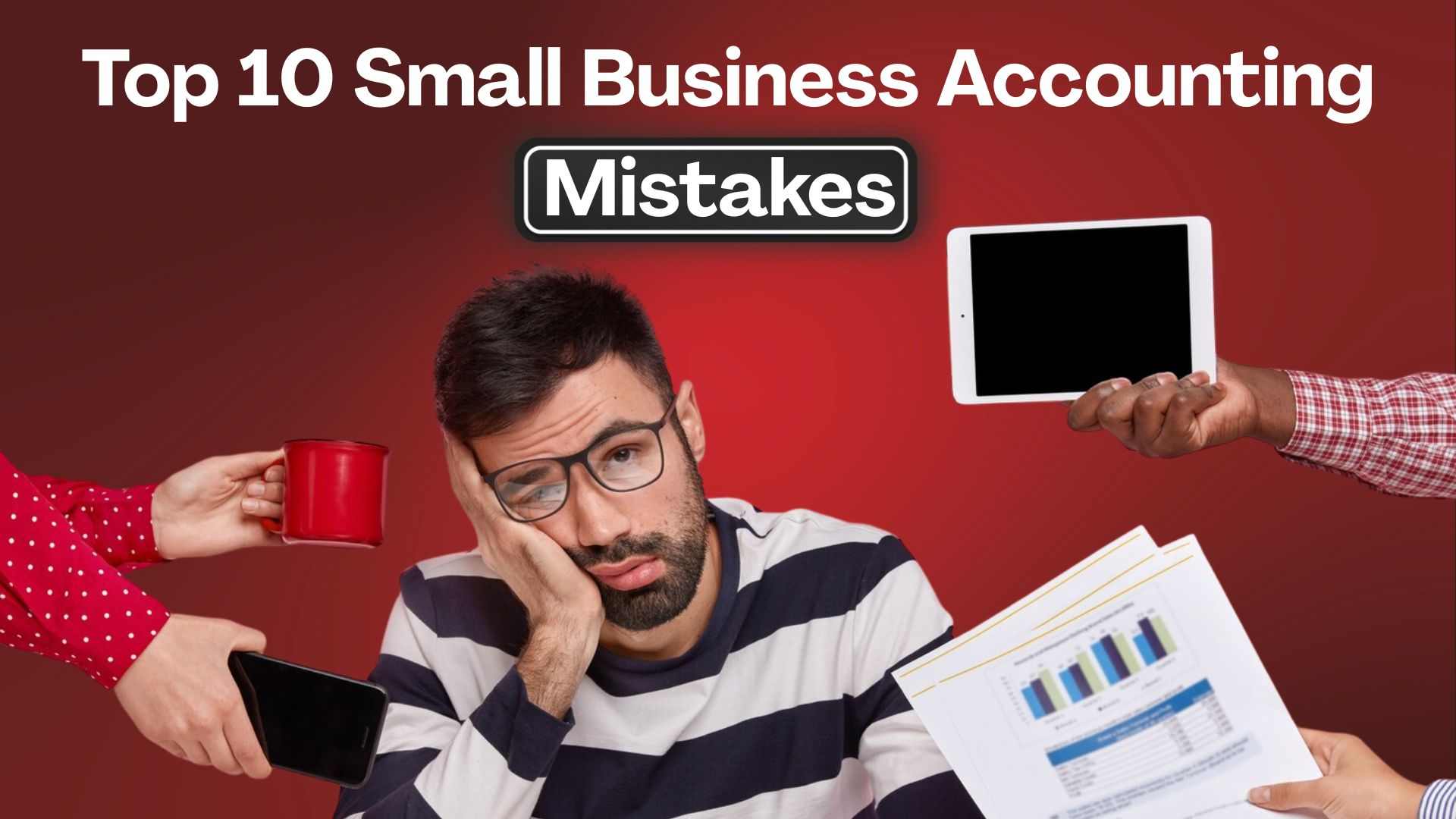

 447 Broadway, 2nd Floor, Suite 2531, New York, NY 10013, USA
447 Broadway, 2nd Floor, Suite 2531, New York, NY 10013, USA 20 Wenlock Road, London, N1 7GU, UK
20 Wenlock Road, London, N1 7GU, UK